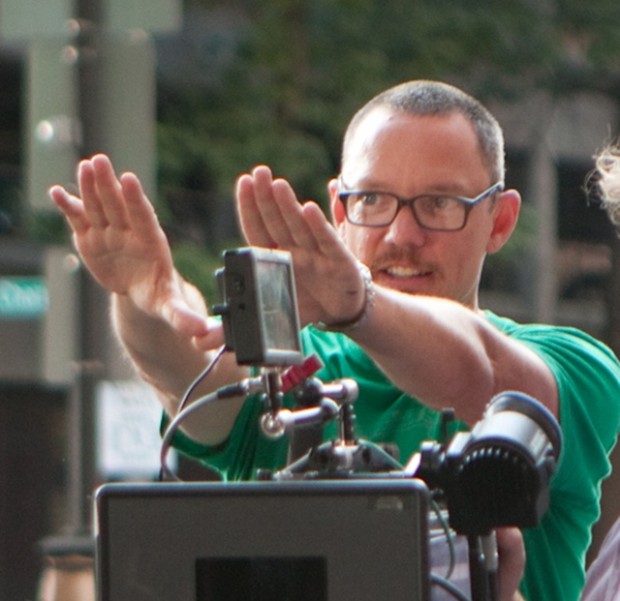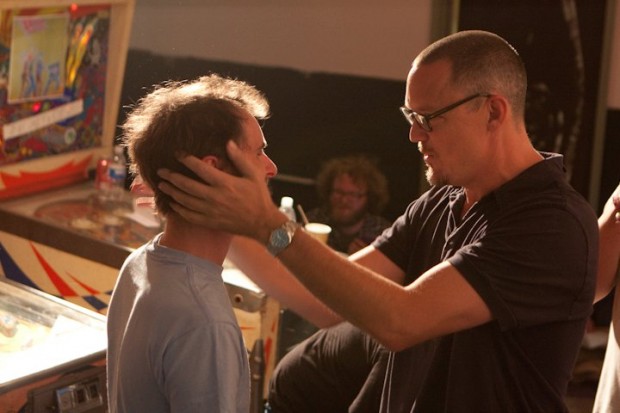
The list of actor-turned-director is constantly growing, and Matthew Lillard‘s first gamble behind the camera, Fat Kid Rules The World, was a rousing success out of SXSW earlier this year after grabbing the Audience Award. At times funny, but moreover simply honest and refreshing, the film is elevated by fantastic performances all around. Finally on the right track in terms of distribution, the actor/director spoke with me over the phone about his reaction to getting poor offers after such critical and audience praise, how teaching helps him as an actor, whether he likes watching himself on screen, working with Matt O’Leary and corralling his energy, and much more.
The Film Stage: So, I have to confess. I was at SXSW but I wasn’t able to make either of the screenings.
Matthew Lillard: So you hate me, is what you’re saying?
[Laughs] It’s great, because this opportunity came back around. I had heard all of these great things about this film from the audience and when it came back around I immediately jumped at the chance. I truly enjoyed the film and I think it relies on the performances of the actors and they are fantastic.
Oh, thanks man. Well, there you go. There’s nothing like seeing it with an audience in the ferocity of SXSW. But the fact that you got a chance to see it at all and you liked it, that’s perfect.
 Out of SXSW you got a certain amount of critical praise and won the audience award. You’re getting a lot of great feedback, yet you were mentioning in some interviews that you were getting terrible offers as far as distribution deals, where it wasn’t presenting an opportunity to actually make your money back. This is the first time you’ve been on this side of the coin for something like that. Was it kind of jarring or did you go in knowing that this was going to be a tough sell, even if you did get great reactions?
Out of SXSW you got a certain amount of critical praise and won the audience award. You’re getting a lot of great feedback, yet you were mentioning in some interviews that you were getting terrible offers as far as distribution deals, where it wasn’t presenting an opportunity to actually make your money back. This is the first time you’ve been on this side of the coin for something like that. Was it kind of jarring or did you go in knowing that this was going to be a tough sell, even if you did get great reactions?
To be completely honest, I was blown away. I was shocked. Not out of ignorance, because I think I’m keenly aware of what it takes to make a successful film and how hard it is to distribute films — I respect that completely. The idea that we wouldn’t even find somebody that saw what we saw was a little surprising. Even the demographics and that there are so many kids struggling out there. Here’s a movie that’s complete that people enjoy, that leaves you with a good feeling, and it has a message.
I was a little surprised that we couldn’t find somebody to believe in it enough to champion it. Everyone, to our face at least, said, “I loved the film. Love the film. But we’re not going to buy it.” It’s one of those things where if you love the film and it plays well and it’s successful, and the audience likes it, and you like it and can appreciate it… what is missing? But I get it. I get it. I get why… and sorry, I should speak succinctly but it’s so hard because it’s emotional. I understand it. But emotionally I was shocked that somebody wouldn’t take the chance. I mean, Sony Pictures Classics is a place that has built a reputation around finding little movies that work and getting them into the world. So, yeah, I think our movie works and maybe they don’t think so. I don’t know. [Laughs] I literally just blathered in a circle and said “I’m shocked,” and then said, “I don’t know.” But the reality is that it was disappointing and it was a little surprising, yes.
I was also reading that you were attempting to develop this film over nine years. You had read the book and you just instantly fell in love with it and have been on this path ever since. This is your directorial debut: were there other films that came up in that time?
You know, there’s been a couple of movies in between. I mean I’ve gone as far as scouting locations in Ireland for another film, just couldn’t put together the financing. But it’s so hard to make an independent movie. I mean it’s virtually impossible. So many things have to align for a movie to come off and get made. So I have been on other missions that just have not been successful yet.

Matt O’Leary is this big ball of energy in the film. He really propels the narrative forward at times. I was lucky enough to be able to sit down with him at SXSW for another one of his films. That manic energy comes across even as you’re sitting down in front of him. It doesn’t take the screen to bring that out. So how much do you simply contain and corral him and how much is that energy down in between takes?
That’s an interesting question. Look, I believe that great performances are built in energy. If you look at the performances of Philip Seymour Hoffman, they all have this incredible forward momentum to them. I like that. So I’m attracted to that, as an actor, so finding that when Matt came in, I was attracted to it. He’s also fearless, and I love that. That energy applies itself and you can say to him, “Hey, less here,” and he’ll jump into that choice. The great thing about Matt O’Leary: I feel like together we are very symbiotic. I can lead him to places where I want him to be: simple; to go big, or strong, or bold; beat up and tired. I could paint with him. Together we could paint great pictures. He’s not just a crazy, manic, ball of energy that’s out of control. And yes, he’s definitely still energetic in between takes. The great thing about him is he’s incredibly talented and willing to go anywhere. So that energy applies itself in simple things. When he’s small on screen or to bigger things when he’s big on screen.
You’ve mentioned that a huge portion of your confidence in directing and your confidence in getting these characters out of these actors was your teaching class. I’ve always heard that whenever you sit down to teach someone else something, it’s made you ten times better at whatever you’re teaching. So have you acted since you started teaching that class?
Sure, yeah. I’ve been teaching for five years [or so]. So I’ve definitely acted after teaching.
How does it impact you?
In teaching, when you have to articulate your own beliefs, it solidifies them in your body in a much different way. It’s like arguing religion or politics. Once you start doing that then those arguments become ingrained in you. They become beliefs. Teaching it is even more grounded than arguing something theoretical. It has changed me as an actor in terms of confidence, I think. A lot of what I teach is really longevity. How to continue through a lifetime of being an artist. That kind of pontificating about how to persevere when times are good or times are bad helps me get through the stuff when times aren’t that great. When I’m insecure or don’t get a pilot like last year. When you’re struggling and you need a job. Nothing’s happening in acting and you’ve got six weeks off and you’re starting to spin your wheels. It’s those times that teaching really come into play because you have a deeper sense of longevity and purpose, and a lifetime of being an artist. And that’s really where I think teaching has helped me the most.

I hear a lot of actors don’t like to sit down and watch their films. You’ve been on that side and now you’re on the directing side. Is there a refreshing, “Oh, I can finally sit down and watch my movie”?
Well, first of all I’ve always enjoyed watching myself act, for better or worse. I mean, I may be bad in a movie but I still have fun. I think that I’m chewing scenery in Uwe Boll‘s In The Name Of The King. I think I have fun watching myself. I don’t understand actors that freak out about takes. The reality is that it’s our job to supply the director with options to cut the movie together. I really like throwing myself into his process and becoming about satisfying his vision rather than the myopic view of “Oh, I suck.” It doesn’t really have anything to do with me as long as it’s serving the movie and the director likes it. So, for me, I’ve never had the problem of “Oh my God, why’d they choose that” because I believe they chose that because that’s what the director wanted and as definition of an actor, that’s my job. My job is to give him what he wants. In general I think directors like working with me and have been happy. It’s not really my place to say, “Eww, God, why’d they choose that?” There are definitely shots in Trouble With The Curve, for example. “Oh my God, why’d they shoot that angle? I look like shit.” But the reality is that that’s for them to choose and not me. It’s kind of my job to satisfy their desires.
Fat Kid Rules the World is in limited release and expands throughout the month.

